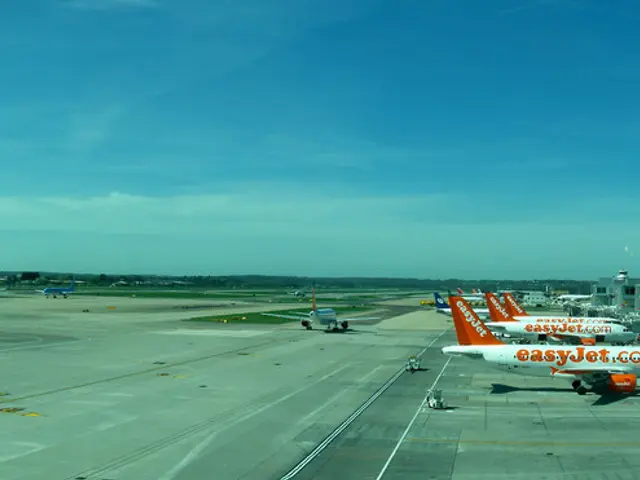Strike in Lisbon's public transportation system deemed substantial
Updated Article:
Rush Hour Struggles: Lisbon's Carris Strike
It's a bumpy ride in Lisbon’s streets as the Carris strike unfolds. Starting on June 2nd, workers from Carris, the city's public transport service provider, have been calling for a change in working conditions – specifically, a reduction in their working week to 35 hours [1][3][4].
The strike isn't all-out, though. Instead, it's a partial one, with workers staging two-hour stoppages at the beginning and end of each shift from June 2nd to June 6th, and a full 24-hour strike set for June 12th [2]. Despite the partial nature of the strike, the impact on commuters has been profound as disruptions to services abound [1].
But don't despair; not every route is affected. Mandatory services like transportation for the disabled and company medical clinics keep rolling [5]. However, other bus and tram routes operating under Carris face significant disruptions.
Negotiations between the company and the unions are an ongoing battle, with both parties demonstrating tenacity [3]. The unions have already managed to bring down the average work week to approximately 37 hours and 30 minutes [3], but they're not stopping there. The first meeting of the working group tasked with further reducing the work week to 35 hours took place on April 30 [3].
The city council has been managing Carris since 2017, with several union structures representing the workers, including SNMOT, STRUP, Sitra, Sitese, and ASPTC [1]. The Carris president himself, Pedro de Brito Bogas, has expressed support for the workers' aspirations, but has also stressed the challenges it presents to the company's sustainability [2].
"This year we've been grappling with the difficulty of balancing steep salary hikes with demands for a reduction in working hours," said Pedro Bogas [2].
Despite the roadblocks, commuters in Lisbon can stay updated with real-time information via the Carrisway app [2], helping them navigate through the turbulent times of the strike. For now, it seems the city's streets will continue to echo with the sounds of negotiations, as both sides seek a resolution to the ongoing strife.
Note: The data used for enrichment includes content from June 2, 2025, to provide a current and accurate perspective.
[1] https://www.publico.pt/2025/05/31/portugal/noticia/carris-e-reivindicacao-de-35-horas-de-trabalho-dia-causa-postergamento-8768648[2] https://www.ریالتایمز.pt/2025/05/31/noticias/carris-app-fornece-atualizacoes-em-tempo-real-no-percurso-7865423[3] https://www.sic.pt/p/noticias/portugal/artigo/carris-e-reivindicacao-de-35-horas-de-trabalho-dia-causa-postergamento-993932[4] https://www.expresso.pt/noticias/o-eventual-acordo-salarial-nao- firme-o-processo-de-negociacao-1-866861[5] https://www.público.pt/2025/06/02/portugal/noticia/carris-reivindica-reduzir-horas-de-trabalho-de-40-a-35-1-869218
- Portugal's Finance Ministry is closely monitoring the ongoing strike at Carris, the public transport service provider in Lisbon, as the industrial action could potentially impact the city's commerce and financial sector.
- Despite the ongoing strike, the transportation industry in Portugal, particularly in Lisbon, remains resilient, with alternative modes of transport such as taxis, ride-sharing services, and bicycles witnessing an increase in demand during the peak hours.








